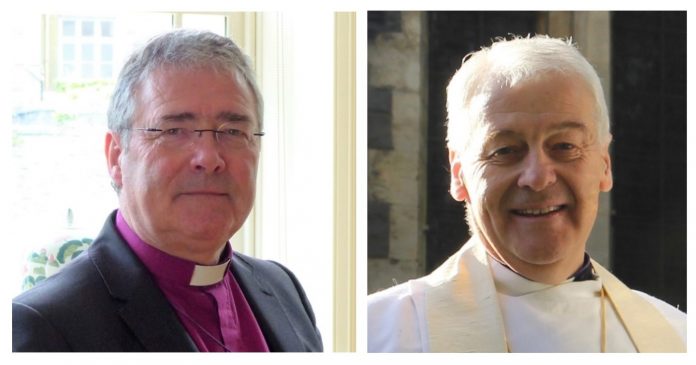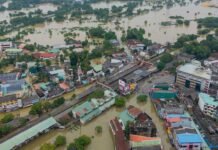St Patrick’s Day is a day on which to reflect on Gospel and on Ireland. It is also a day on which to ask what connects them to one another in the contemporary world. St Patrick came to Ireland and came back to Ireland to share the Gospel, to live the Gospel, and to teach the Irish to live by the Gospel. He was not at the top of the social pile but at the bottom. He was a captive and a refugee, trafficked and enslaved. He did worthy and menial work. Yet the glory of God shone through his person in his teaching, his example and his writing. And he loved the Irish.
There is every reason to be sad and to be angry in a world where we readily feel helpless. And helplessness feeds hopelessness. Inequalities and injustices are part of the wallpaper of our world. Their protagonists occupy the front rows of seating in our world. Our frustration at institutions and acronyms that promise so much and deliver so little mounts daily and readily spills over into cynicism. The pulsating danger for our world on St Patrick’s Day is that cynicism morphs into apathy. And apathy opens the door to anarchy, polite and impolite, whether to left or to right, it matters not.
Our world, and indeed our Ireland, is a place of jarring and jagged contrasts. On the one hand, we welcome strangers and on the other hand, we set alight the accommodation that might have been their home and inflict shame on the community in whose midst they might have begun a new life holding to the lifeline of human dignity. Vast tracts of housing, which those who live in them will never be able to buy because they are built not to sell, but solely to rent, sit edgily alongside people for whom living in a tent on the street is not even an option.
Israel–Palestine, Russia and Ukraine are places of war and unsettlement, of disease and contagion. So also are Yemen and the Democratic Republic of the Congo along with countless other countries. Alienation and irrelevance show their faces differently but they show their faces nonetheless at home and abroad. It is a human duty in a post–Christian country to welcome those who flee oppression and to stand against those who persecute. Failure to speak against an anti–immigrant and a racist narrative creates a new level of tolerance of what only weeks before was intolerable.
The Gospel for St Patrick’s Day (St John 4.31–38) speaks of the fields being ripe for harvest. This is a creative and a generous prospect. In the midst of desolation, there is the hope of harvest mediated through love. It speaks also of: one sowing and another reaping. Those who benefit do so on the back of the hard graft of those who went before them. Our world is a world where self–image triumphs over self–understanding. St Patrick’s life gives us food for thought and food for generosity about who we are and about who we might yet become. We have still a lot to learn from one who was an enslaved serf and a trafficked foreigner in Ireland 2024.
Archbishop John McDowell
Archbishop Michael Jackson



